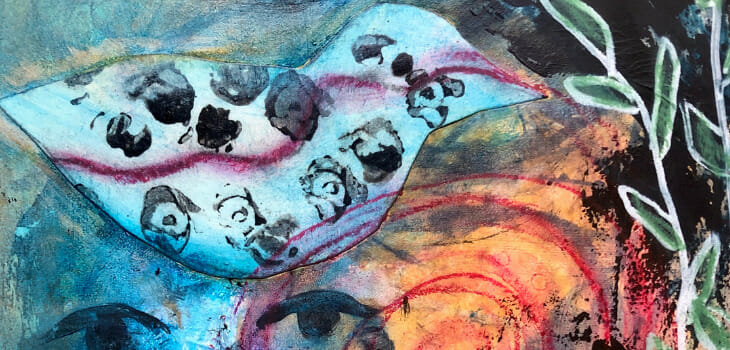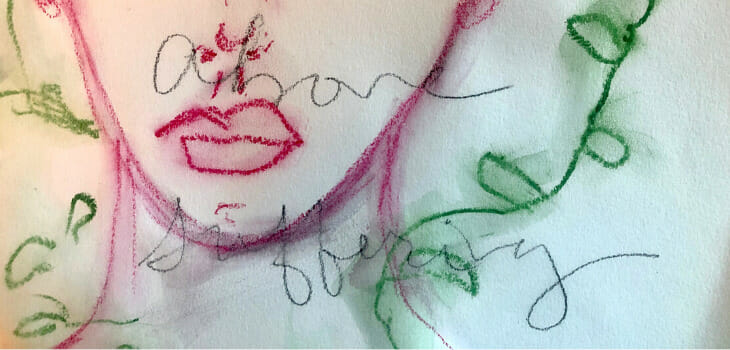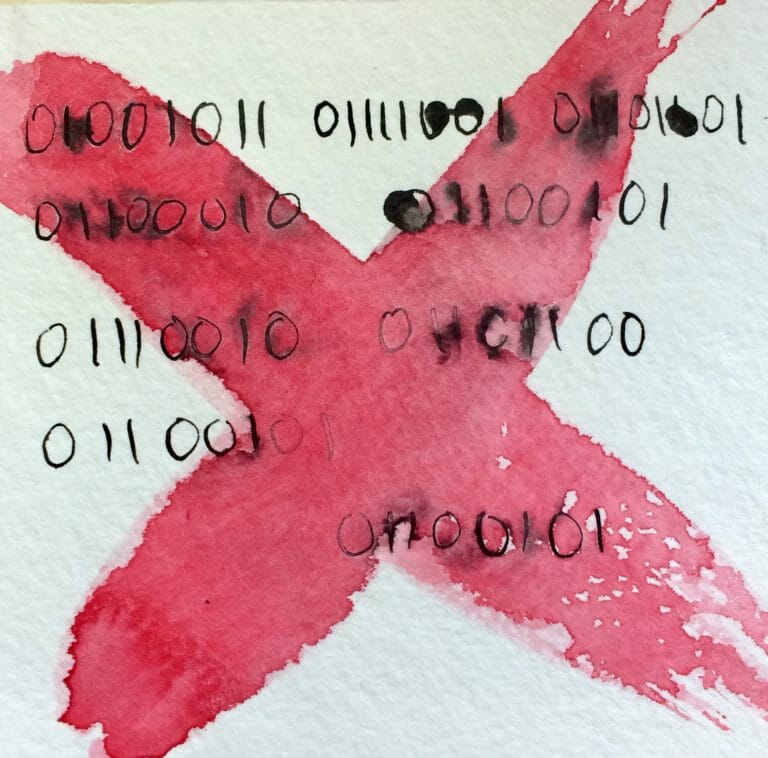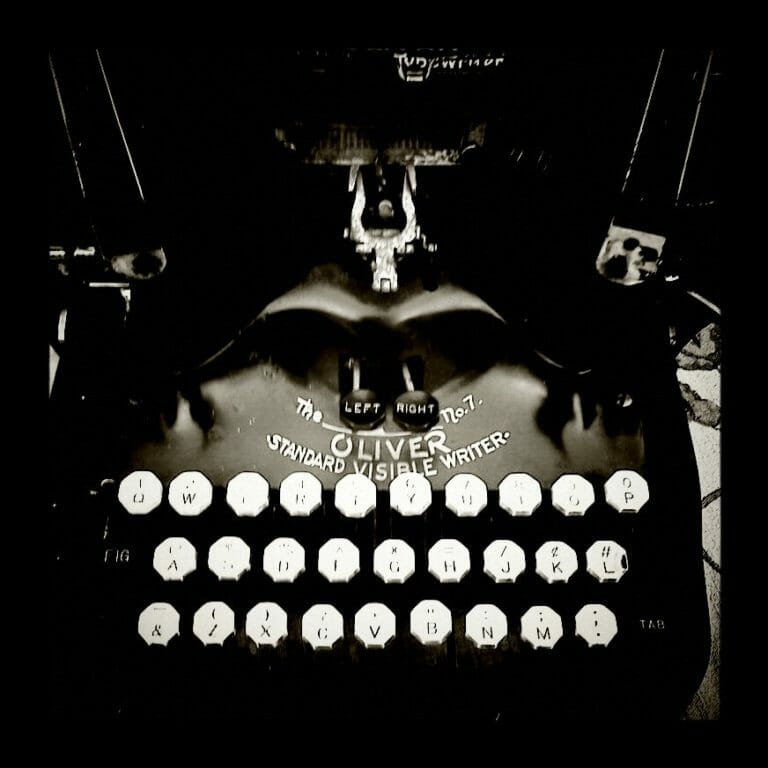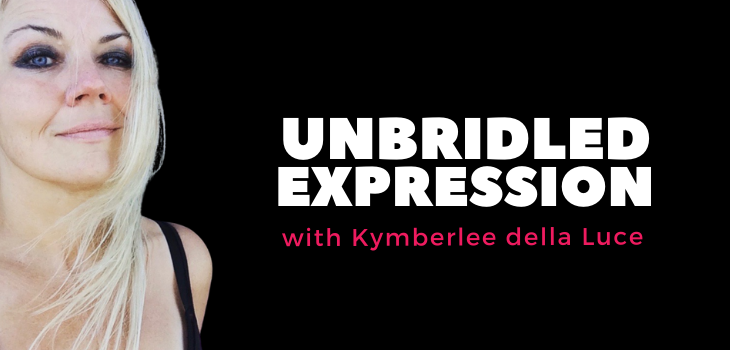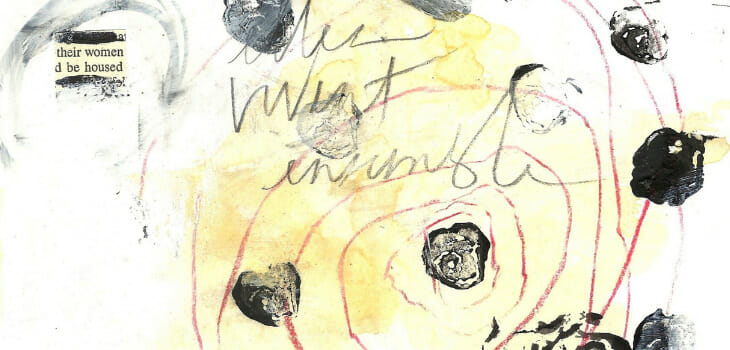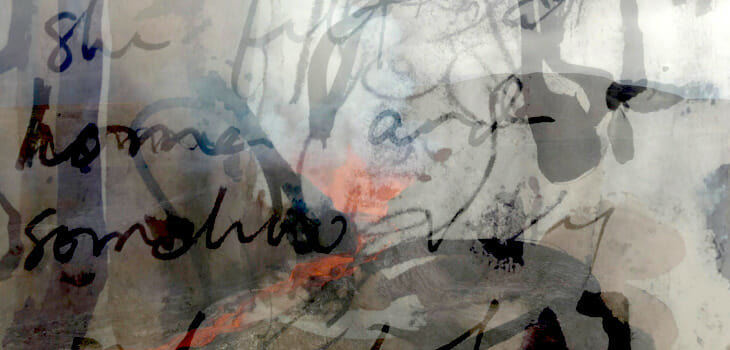Unbridled Expression with Kymberlee della Luce Transcripts: Release Pain and Suffering Through Embracing the Color Purple
Please enjoy this transcript from Release Pain and Suffering Through Embracing the Color Purple!
In this episode, I talk about the energy of the Solstice, and how to release pain and suffering through embracing the color purple.
You can subscribe on Apple Podcasts, Spotify, RSS, Overcast, iHeart Radio, Amazon Music, or wherever you listen to podcasts.
legal stuff
Before you partake, please read the below, which applies to every transcript.
Kymberlee della Luce owns the copyright in and to all content in and transcripts of the Unbridled Expression with Kymberlee della Luce podcast, with all rights reserved, as well as her right of publicity.
WHAT YOU’RE WELCOME TO DO:
You are welcome to share the below transcript (up to 500 words) in media articles (e.g., The New York Times, Washington Post, The Guardian), on your personal website, in a non-commercial article or blog post (e.g., Medium), and/or on a personal social media account for non-commercial purposes, provided that you include attribution to “Unbridled Expression with Kymberlee della Luce” and link back to the kymberleedellaluce.com/podcast URL. For the sake of clarity, media outlets with advertising models are permitted to use excerpts from the transcript per the above.
WHAT IS NOT ALLOWED:
No one is authorized to copy any portion of the podcast content or use Kymberlee della Luce’s name, image or likeness for any commercial purpose or use, including without limitation inclusion in any books, e-books, book summaries or synopses, or on a commercial website or social media site (e.g., Facebook, Twitter, Instagram, etc.) that offers or promotes your or another’s products or services.
This is Unbridled Expression and I’m your host Kymberlee della Luce. Every Wednesday we talk about art culture creativity and whatever else we’re curious about thanks for listening and if you like it please do subscribe and share.
Hey everyone it’s Kymberlee. How are you doing? I have a great show for you today. Ican’t wait to to share! The first thing I’m going to share is this poem that I wrote a couple years ago and it’s going to be a little bit of a framework for everything else we’re going to talk about so here we go, sit tight. The poem is called “purple is”
Purple is the in-between
Between twilight and the deep dark
In between left and right
(Right is not straight despite its etymology).⠀⠀⠀⠀⠀⠀
⠀⠀⠀⠀⠀⠀
And purple isn’t just red and blue,
It’s also the absence of yellow.⠀⠀⠀⠀⠀⠀
⠀⠀⠀⠀⠀⠀
Purple is the perfectly ripe plum
And the darkest bruise that takes a month to fade
(from the skin).⠀⠀⠀⠀⠀⠀
⠀⠀⠀⠀⠀⠀
In England, the Purple Emperor butterfly was once captured with rotting flesh.⠀⠀⠀⠀⠀
⠀⠀⠀⠀⠀⠀
Purple can be the color of mourning
And the color of the irises that I once planted in my mother’s garden.⠀⠀⠀⠀⠀⠀
⠀⠀⠀⠀⠀⠀
(Are butterflies meant to be captured?)⠀
This is being recorded on the day after the Winter Solistice, a beautiful time that is the birthing of the light and it is the most sacred holiday for me, the the holiday of being connected to the earth and allowing myself to feel that energy. That solar energy as this the sun is burst you know through the the legs of the mother coming out of the cosmos. I love, love the winter solstice. I love how dark it gets and then I love the burgeoning light each day—it’s just amazing.
So last week, I drew a card from the Brian Eno “Oblique Strategies” deck and the card I drew was “cluster analysis”. So I just sort of riffed not actually knowing what the definition of cluster analysis was. Uh. there’s a lot more to say about that and I am likely going to be writing about it in a blog post so you can look at that. Look for that I mean, but I thought I would just quickly read the the blurb in wiki about it it says, “Cluster analysis or clustering as the task of grouping a set of objects in such a way that objects in the same group called a cluster are more similar in some sense to each other than to those in other groups clusters,” it goes on to say, “…cluster analysis itself is not one specific algorithm but the general task to be solved.” So it’s kind of where we’re at in culture right now. Uh, there is a lot of polarity happening at least in the United States right I’m just going to specifically talk about my culture where I live. Um I imagine— actually I know—that there’s a lot of this happening in other parts of the world but we’ll just we’re gonna keep it here for the sake of a creative constraint.
Um, there’s just a lot of you know polarity a lot of disagreement I find myself getting caught up in that my you know in my own head in my life um and i’ve been sort of you know trying to find a balance right to to create some magic out of it to to understand what I’m what I’m here for to be giving my offerings to the world in a way that makes sense to you hopefully and to me certainly doing this podcast is helping me understand myself better one of the great things about self-expression is that it gives you a sense of you know self-awareness it’s reflective practice is the bomb, right?
Um, when we allow ourselves to go back over what we’ve said or what we’ve written and uh you know look for the the patterns, um, it’s really helpful to you know better understand ourselves and I think on some level maybe that’s what cluster analysis is. I’m going to keep going back over the topic of cluster analysis because it’s fascinating to me. It was actually originated in anthropology in 1932 and has been used in lots of contexts so uh yeah but for me in my own context I’m noticing with creating this podcast I am sort of, you know, like learning I have to put tags on everything and I have to you know I don’t have to but I’m choosing to create transcripts and, you know, organize the material and as a very free spirited free-flowing kind of person chopping things up in into categories and sort of putting them in boxes is really not my strength. And in fact, I would say it’s it sort of goes against my natural way of being. I often feel like I’m just a river you know just kind of cutting through and flowing picking up debris you know and just kind of riding, you know, cutting through the land. I don’t know like um there’s an image that that comes up for me of, you know, like a not exactly a spiral but like if you’ve ever flown over the land um when you look down you can see the way that you know humans have cut everything up into boxes for like farming and um and, you know, land management um but the rivers, right? Like the the really big rivers here in the United States will just cut through everything and the humans have to sort of, you know, move around those rivers and sometimes the rivers disrupt the uh disrupt, the you know, the neatly compartmentalized bits that humanity tries to lay down and that’s often um sort of a metaphor for me that I, in order to thrive in this world in order to make sense of things and to help other people make sense of things sometimes we have to have categories.
But, um but for me, I always go back to you know like a circle or a bowl or a you know or a river you know something thatIguess sort of vessel-like or water. Idon’t know. When I was categorizing my videos on youtube so that I could have videos of my podcast I noticed uh this video from years ago that is about my um my artistic practice and it was a some kind of participatory—Idon’t know like large online class—that I took and we were supposed to do these tasks and at the very end, I basically said something like, “yeah boxes just don’t make sense to me so I had to put my I had to put myself in a bowl”. [laughs] iI’s just really funny how, how that works out. I’ll link to the link to that video and you can you can see what I’m talking about.
So being really, I guess you might say, really feminine, really, you know, carrying a lot of feminine energy like I do and carrying a lot of that kind of being connected to everything uh the way that I often feel it has come to not surprise me when little synchronous events happen like in episode two which would have been two weeks ago I referenced bell hooks uh and uh you know shared a link to her book and about a week later I think, she ended up passing away sadly. But um, I’ve noticed that I’m often vibing with things that and I don’t even know why. I just sort of like, I’ll pick a book up off my shelf or I’ll run across something that pulls everything together or that brings me exactly the information I needed in that moment and more and more I’m beginning to trust that. Also many years ago when my mother passed away—may she rest in peace, and may bell hooks rest in peace—when that happened she was living in Arizona trying to get up here to Seattle to see my daughter’s graduation and trying to figure out where she was going to stay and stuff like that. And the entire time she was talking or, you know, we were making these plans it was really strange because here I am talking to her (we talked a lot) and uh and I just couldn’t shake the feeling that she wasn’t gonna end up coming. I I didn’t know why, like she had bought a ticket and everything. She was, you know, really set on coming before the graduation but I just I couldn’t, I couldn’t see her here I couldn’t feel her essence in that moment, and then you know about a week two weeks something like that before my daughter’s graduation unfortunately she passed away . And again, these kinds of moments, they happen a lot in my life they always have and the more I pay attention the more I start to see these patterns and maybe that’s my own kind of cluster analysis, I don’t know.
It’s interesting though and as I, as I put this work out into the world, I think about how I can be part of a movement that that means something to me a movement that’s necessary. The sort of the feminist movement. how I can be part of that, how I can continue the work of bell hooks people like bell hooks people like Prince. Um when Prince died, I remember him—he was huge like he was my absolute um inspiration absolutely in my my lineage my artistic lineage in even like my I would say my philosophical or spiritual lineage—so the night before prince died, I was laying in bed with my lover at the time and he was younger than me so Prince wasn’t really part of his like growing up years right, and I was like, “Hey you know can we put like a Prince playlist on or something because I love his music,” and he’s like, “Yeah let’s do that,” so we put this Prince playlist on you know we enjoyed it and then the next day Prince died. And it was such a strange coincidence because I hadn’t listened to Prince in a while and I just sort of “randomly”—I’m putting that in air quotes—as I said here I just randomly had had him play this music and and then Prince died and as I was saying when he did, I remember thinking at the time that you know it’s a huge loss for humanity and at the same time it’s like my job to carry his ideas forward. His love of liberation, his love of, you know, he had a real sense of unity but he was also absolutely doing the work of deconstructing, right? Deconstructing the the oppression the the oppressive system that we’re in and was uh was really outspoken about it and also really loving which is how I feel that’s also true of bell hooks and also true of my mother, bless her. Yeah lots of outspokenness going around and yet I consistently want to stay in my heart space. I feel like that is the most important thing as we as we sort of surf the waves of the chaos that we’re going through like in cluster analysis where there’s a grouping of um a set of objects categories um where you’re sort of looking at what the objects have in common. Um, I’m tasking myself right now to not always focus on the differences because when we focus on the differences of each other instead of what we have in common and we, you know, we’re always, you know, polarizing or, you know, choosing sides all the time, we end up with a lot of brokenness. We end up being honestly manipulated by um by people who have more power and privilege and that’s exactly the way the system has worked for a very long time. Unions get busted up that way, right? When you divide you can conquer and I don’t want to see humanity go down that road. I want to see humanity get together and enjoy life and plant a garden together and, you know, just just be in that that more like you know dancing, beautiful, space. I would start singing a Prince song here but YouTube does not allow that and this is going to end up on YouTube. It’s kind of a bummer actually isn’t it? Anyway yeah so I what I’ll do instead is I will link to a dance party video or song that I made during quarantine just for fun so we can dance to that when the time comes.
Um, but that’s kind of what I was getting at with this idea of like purple right um that it’s not one thing or the other it’s this blend right? I remember years ago when there were some really contentious elections here not 2016, I think it was like, I don’t even remember. I think it was wheb Obama won and um you know there’s all this celebrating uh from Democrats um and I remember looking at the map on the news channel and the blue and red and I thought you know those are almost equal like like the Republican Democratic split is, you know it’s been in the country, I’m not talking about in the Senate I’m talking about just even in you know, like where our people connect or don’t, right? And I wonder often about ideologically where we connect and where instead of where we don’t you know I’m a very liberal and progressive person in a lot of ways andIalso have seen some um just really shitty behavior frankly on the part of um other liberal and progressive people who don’t seem to tune in to a person’s humanity or a group of people and I’m not saying I’m I’m immune to that but I don’t—that my mind doesn’t go there—I’m not saying that it isn’t easy, you know, to to veer over to like, “Oh those people” but I, it’s not actually you know, I consider myself a card-carrying feminist and that you know feminism isn’t about harm, it’s about care, it’s not about polarity it’s about being you know, you know, being together and creating together and at least that’s my brand of feminism also belle hooks so I’m going to read to you a couple of passages from bell hooks in her honor and also because they’re very in alignment with what we’re talking about here today. The first one is from, actually, both the quotes are from Teaching to Transgress: Education as the Practice of Freedom. This is a book that I got when I got my master’s in education and it is phenomenal. I recommend it and on page—what page is this—page 83, in it she’s talking about how she’s concerned that identity politics um don’t really help right they can end up continuing like perpetuating marginalization um and she’s quoting someone named Fuss. She says, “Fuss makes the point that the artificial boundary between insider and outsider necessarily contains rather than disseminates knowledge.” So using our river metaphor uh the information can be like the river it can flow it can kind of push push us out of the ways that we try to contain and sort of categorize and box everyone in you know categories are great with data. Categories are great when you need to help—I’m I’m realizing as I build out my my website and you know build, build up my work and try to create something that is, that is referenced so people can find it if that’s what they’re looking for, I hope that’s you, little plug—but what I’m finding as I do that is that it’s very useful when I’m trying to find something, it’s useful to think about oh wow! This is a gift you know, if I put a little label a little tag on this put a category on this, people can find it. That’s so great.
What’s not great is when we do that in a negative way towards people when we clump a bunch of people together and say you know make a determination about them based on that oh they are a this and therefore they must do this it’s it’s not helpful it’s dehumanizing and and I think I have used the word “dehumanizing “so far on all of the podcasts this is a this is a theme because it’s a problem when we do that to one another and I wanna, I wanna try to be a helper. Now I’m gonna read from page 75 of the same book this chapter is called “Theory as a Liberatory Practice”. Liberatory practice is what this is all about! We need it, we’re here for it, we get to do this. it’s going it can be fun and it’s a lot of work and there’s sorrow. There’s sorrow my friends and um it’s so important that we remember that and that we don’t try to, you know, shove it down yeah so she says, “I am grateful that I can be a witness testifying that we can create a feminist theory a feminist practice a revolutionary feminist movement that can speak directly to the pain that is within folks and offer them healing words healing strategies healing theory there is no one among us who has not felt the pain of sexism and sexist oppression, the anguish that male domination has created in daily life the profound and unrelenting misery and sorrow.”
I wish that the misery and sorrow wasn’t thereIwish it was all joy all the time that’s what I always wish for everyone. I do. But it is there and we have to face it, right? Being shielded from it is not helpful. I was telling my kids the other day that um,I feel like the time we’re in where we’re starting to look around and see how dysfunctional the systems are and we’re starting to see how oppressive they are we’re starting to see how much we’ve been harmed by our government, by the lies we’ve been told in various, from various places institutions government et cetera et cetera it reminds me of finding out that there’s no Santa Claus, you know? I remember being so angry and hurt at my parents, that they had been lying to me for such a long time that oh there’s no tooth fairy there’s no Santa Claus what why did you tell me there was when there wasn’t? Like, I just, and I didn’t actually do that with my kids like it was all very tongue-in-cheek for that reason because I didn’t want to lie to my kids. I didn’t want to lie to my kids because I love them and to me love means truth, it means connection not manipulation. Everyone manipulates at various times in their lives until they learn not to. Hopefully they do learn not to. So one of my favorite holiday movies is “Elf”. I love it and it also is like predicated on this whole idea that “oh my gosh can you believe it can you believe all these people don’t don’t believe in Santa Claus?” Well, what do you think the parents yeah the parents do it—often the moms—do it, you know what I’m saying? Like yes, it is the parents who are making it happen and it is not a man um in a red suit blah blah blah you know the history of all of that is so I’m not even going to go into it but there is no Santa Claus and the spirit of Christmas isn’t about consuming.
So we’ll keep talking about consumerism and capitalism and about the system that needs to change and we’ll keep thinking about how we can love one another along the way right that’s what matters to me what matters to me is that we stay in that heart space as we deconstruct because deconstruction is not the same thing as destruction. Destruction is what we’re trying to stop doing. Deconstructing something that is engaging in destruction is what is needed. So I’m not really sure why people cling to old systems that aren’t working we know there are people that are manipulating the system um that are just hugely benefiting from it but the everyday person seems to cling to it because they don’t maybe don’t know that there’s another way that’s my guess it’s like you know we frequently fear change we fear what’s going to happen if we embrace a new way and uh and this is a common thing in humanity but as we connect with one another and we work towards unity we work towards collective effort and I’m not talking about communism, okay? That that’s not what we’re we’re not here for talking about communism. I think honestly I’m more of a conscious capitalist if I’m honest. I think capitalism has a lot of great stuff but again I don’t really care about the labels so we’re going to just not think about that about labels.
Let’s just talk about choices right this is the last thing we’re going to talk about today so my family plays a game called Settlers of Catan. It’s fun. I love it. It’s you know, like, a game. If you if you don’t know it I’ll briefly tell you that it’s a game of dividing resources each person has a certain amount of resources and that’s assigned and then you go through the game acquiring resources trading that sort of thing. Now, Settlers of Catan can be played more than one way you can play it as what I would call—I’m gonna label—you could play it as an avaricious bastard, right? You can you can be all for you and just collecting as much as you can you can also play the game in a very cooperative way now ultimately there will be a winner because it’s a game right? I like co-op. I like games where um the point is to um everyone create something together so that everyone wins so like when you’re when you’re looking at it in a playful way you can say oh you know like let’s let’s see how we can do this and in our family we tend to play pretty cooperatively like, “Oh sure! What do you need? Let me see if I have it.” But one time, we were playing with another family. Uh, the the man of the family then the sort of, the father of the family wasn’t actually playing the game but was just sort of pacing around watching us play it. I’m not sure why. And I gave away, I just openly gave away a bunch of my resources and he looked at me with this really shrewd look on his face and he was like, you know, “Why are you doing that? Like what’s in it for you?” and he had this attitude of I was like, somehow trying to manipulate something for my own advantage. I have no idea what that would be but it isn’t that like, this guy was, you know, some kind of, you know, jerk or something. It’s just, it just showed me that like people have different ideas about stuff like this that you know, I don’t know, I was born in the 60s. I’m such a hippie. I really am, and and I’ve come to realize not everyone’s like that and you have to be really careful if you think like me and you’re around a lot of people who don’t think that way. You can easily get taken advantage of so remember that kids.
So I’m telling you this to illustrate the idea that we have choices. We don’t, it doesn’t have to be either this or that it’s either red or it’s blue um it’s either you know you’re a jerk or you’re awesome you’re a demon or you’re an angel whatever you know whatever those polarities are—oh my gosh! I just realized you know, Prince, one of Prince’s huge songs was “Purple Rain”, right? Wow! Yeah his whole thing was purple and I just vibe with that.
My kids used to go to this little cooperative school and they always used to sing a song at the end of the day they would all hold hands and then they would sing the song and I’m gonna end this uh this session by singing one verse of it: [Singing] Go now in peace, go now in peace, may the spirit of love surround you, everywhere, everywhere, you may go.
There you go. May the spirit of love surround you wherever you may go and may this Solstice, this Solstice energy bring you love and light. May it bring you many blessings may it bring you joy may you find your way to letting go of the things that have been hurting and the the past stuff that’s been may we all because I know I still have some of that inside of me um yeah so you may you find your way to releasing suffering and pain and finding sharing and caring and joy in your life. Thank you for being here and listening until next time…
Kymberlee della Luce:
Unbridled Expression with Kymberlee della Luce is designed to stimulate and entertain you. Chocked full of thoughts, stories, questions, and advice on topics including everything from creativity, culture and relationships to the experience of being an unbridled woman and artist, it’s intimate, raw, and decidedly unbridled. New episodes every Wednesday (because, Mercury). Kymberlee truly hopes it ends up on your Spotify wrapped as your favorite podcast. Feel to reach out to her on Twitter or drop a comment below. To listen to any of the past episodes for free, visit this page.
